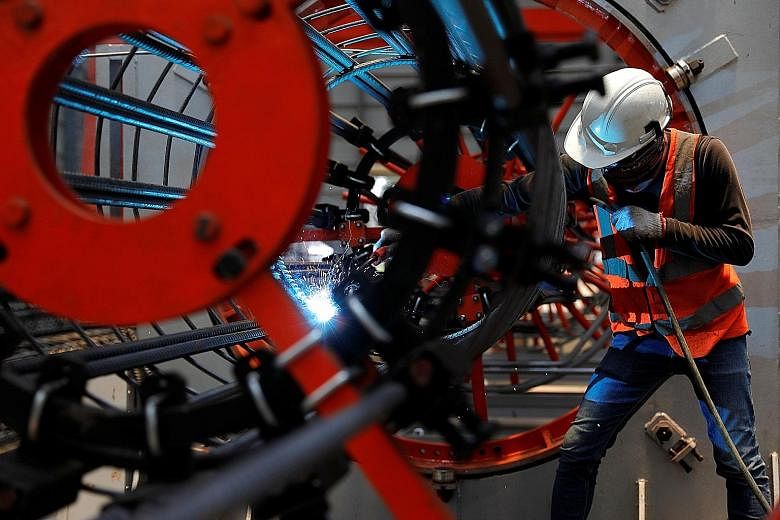Indonesia's investment chief, Mr Thomas Lembong, is optimistic that the Jakarta-Bandung high-speed rail project is back on track after years of mismanagement, despite lingering concerns over how long it will take to recoup the costs of the ambitious joint venture with China.
"What has plagued the project over the last three years is just mismanagement, plain and simple. We had not even the B team in there. Possibly not even the C team, but the D team," he said at a Jakarta Foreign Correspondents Club dialogue yesterday. "It's not geopolitics or politics or policy or ideology. It's just good, old-fashioned mismanagement and incompetence."
Mr Lembong has been vocal about his frustrations with the difficulty in getting information from parties involved in the project.
But there has been a shake-up in recent months, with State-owned Enterprises Minister Rini Soemarno putting more competent people at the helm of the joint project.
The US$6 billion (S$8.2 billion) project linking Jakarta with textile hub Bandung - about 140km away - is expected to slash travel time to about 40 minutes from more than three hours by train.
But it has been dogged by delays and controversy. Critics say that while the project is funded mainly by a loan from China, Indonesia's state-owned enterprises will eventually bear the cost.
Mr Lembong, chairman of the Indonesia Investment Coordinating Board, which oversees foreign direct investment, said: "The longer-term concern for me is that, with the price tag of US$6 billion for a short 140km, what is the payback going to be? How long will it take this project to make its money back?"
The business case for the rail rests on some "very heroic assumptions", including the volume of demand for tickets - priced at about 200,000 rupiah (S$19) for a one-way trip, compared with 110,000 rupiah for economy class by train.
Another is the amount of real estate profits from the transformation of the Walini tea plantation, through which the rail line will pass into a new city.
The project is part of Beijing's multibillion-dollar Belt and Road Initiative (BRI) to link China with Asia, Europe and beyond. While there has been much enthusiasm for the BRI, it has received its share of criticism, including accusations of being a cover for debt-trap diplomacy.
But Mr Lembong takes an optimistic view of the BRI, noting that the Chinese leadership has been "open-minded" to criticism, and is taking steps to address problems.
And Indonesia stands to benefit. "We do want the best technology, the best management, the best financiers on these projects," he said.

